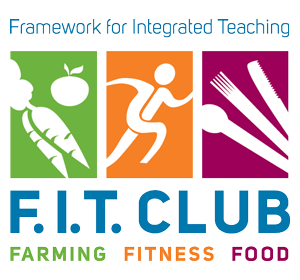Objective
Students will learn about the unique properties of different animal species’ eggs. Students will search through nonfiction texts to identify an animal egg and its characteristics.
DOWNLOAD LESSON PLANS
-
Mystery Eggs – RI.5.9 RI.5.7
F.I.T. Family books to read at home with parents and younger siblings
- Rosie’s Walk by Pat Hutchins
- My Life as a Chicken by Ellen A. Kelley
- Big Red Barn by Margaret Wise Brown
- E-I-E-I-O: How Old MacDonald Got His Farm by Judy Sierra
- From Egg to Chicken by Anita Ganeri
- The Little Red Hen by Jerry Pinkney
- Interrupting Chicken by David Ezra Stein
- Green Eggs and Ham by Dr. Seuss
- Two Eggs, Please by Sara Weeks
- Diary of a Worm by Doreen Cronin
WEBSITE LINKS
- Composting with Chickens
- Chicken Statistics vis Urban Farm Online
- What are Protein Foods? by ChooseMyPlate.gov
- The Incredible Egg
- How to Roast a Chicken
- Reducing Food Waste
- Printable Maps from National Geographic
- IRA/NCTE Read Write Think
VIDEOS
BOOKS
Aston, DH. (2014). Illustrated by S. Long. An Egg is Quiet. San Francisco, CA: Chronicle Books.
Burris, J., Richards, W. (2011). The Secret Lives of Backyard Bugs. North Adams, MA: Storey Publishing.
Cusick, D., O’Sullivan, J. (2012). Animal Eggs: An Amazing Clutch of Mysteries and Marvels. Waynesville, NC: Early Light.
Donovan, S. (2010). Illustrated by C. Thompson. Does An Apple a Day Keep the Doctor Away?:And Other Questions about your Health and Body. Minneapolis, MN: Lerner Pub Group.
Ganeri, A. (2006). From Egg to Chicken. Chicago, IL: Heinemann Library.
Gibbons, G. (2003). Chicks & Chickens. New York: Holiday House.
Golson, T. (2009). Photos by B. Fink. Tillie Lays an Egg. New York: Scholastic Press.
Hodge, D. (2010). Photos by B. Harris. Up We Grow! A Year in the Life of a Small, Local Farm. Toronto, ON: Kids Can Press Ltd.
Jenkins, M. (2002). Illustrated by J. Chapman. The Emperor’s Egg: Read and Wonder. Somerville, MA: Candlewick.
Kelley, E. (2007). Illustrated by M. Slack. My Life as a Chicken. Boston, MA: HMH Books for Young Readers.
Miller, E. (2008). The Monster Health Book: A Guide to Eating Healthy, Being Active & Feeling Great for Monsters & Kids! New York: Holiday House.
Schaefer, L. (2013). Illustrated by C.S. Neal. Lifetime: The Amazing Numbers in Animal Lives. San Francisco, CA: Chronicle Books.
Singer, M. (2008). Illustrated by E. Stevenson. Eggs. New York: Holiday House.
Sklansky, A. (2005). Illustrated by P. Paparone. Where Do Chicks Come From? New York: HarperCollinsPublishers.
Stiefel, C. (2013). Chickens on the Family Farm. Berkeley Heights, NJ: Enslow Elementary.
Weeks, S. (2003). Illustrated by B. Lewin. Two eggs, please. New York: Atheneum Books for Young Readers.
Woginrich, J. (2011). Photos by M. Vilaubi. Chick Days: An Absolute Beginner’s Guide to Raising Chickens from Hatching to Laying. North Adams, MA: Storey Publishing.
Zoehfeld, K.W., (2012). Illustrated by P. Lamont. Secrets of the Garden: Food Chains and the Food Web in Our Backyard. New York: Alfred A. Knopf.
Reference
Kessler, D. (2013). Your Food is Fooling You: How Your Brain is Hijacked by Sugar, Fat, and Salt. New York: Roaring Brook Press.
Kingsolver, B. (2002). Small Wonder Essays. New York: HarperCollins Publishers.
Lehr, S. (1991). The Child’s Sense of Developing Theme: Responses to Literature. New York: Teachers College Press.
Louv, R. (2008). Last Child in the Woods: Saving Our Children from Nature-Deficit Disorder. Chapel Hill, NC: Algonquin Books of Chapel Hill.
Obama, M. (2012). American Grown: The Story of the White House Kitchen Garden and Gardens Across America. New York: Crown.
Pappas, C., Kiefer, B., and Levstik, L. (1999). An Integrated Language Perspective in the Elementary School: An Action Approach, Third Edition. New York: Addison Wesley Longman, Inc.
Pollan, M. (2009). The Omnivore’s Dilemma: The Secrets Behind What You Eat, Young Readers Edition. New York: Dial Books.
